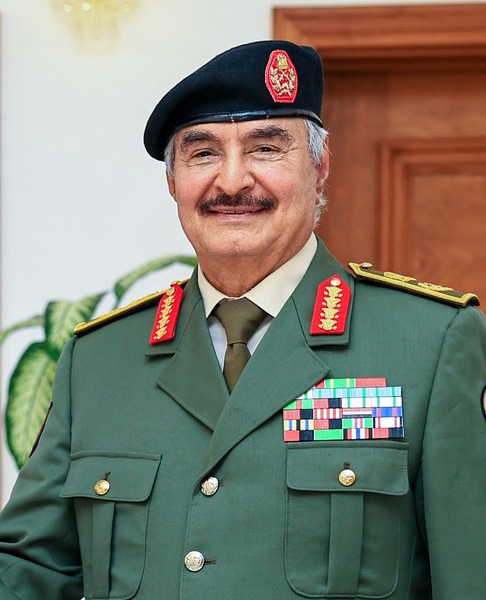With the focus of much of the world on the turmoil unfolding in Gaza, Russia’s President Vladimir Putin continues to extend his country’s influence in Africa.
Russia, through the private military contractor (PMC) Wagner, has been increasingly present in Libya since at least 2018. Initially reported to be training troops under renegade military commander Khalifa Haftar, leader of the Libyan National Army, Wagner’s future in Libya and Africa became uncertain after the death of its founder, Yevgeny Prigozhin, a former Putin ally, following his failed coup in Russia last year.
Russia operates several PMCs, but none is believed to be as closely connected to the Kremlin or deployed as extensively as Wagner. With minimal cost to the Kremlin, Wagner has gained significant financial, military, and political influence across parts of Libya and Africa.
The Kremlin was unlikely to disband Wagner, despite its rebellion last year. Instead, after Prigozhin’s demise, his commercial and military interests were reportedly divided among Russia’s various intelligence services, according to a report by the Royal United Services Institute (RUSI).
Like other PMCs, such as the United States’ Constellis (formerly Blackwater), Wagner allows its government to engage in overseas conflicts indirectly, projecting power while maintaining deniability. This distance enables PMCs to operate beyond the traditional confines of state warfare, engaging in terror campaigns and disinformation.
Command of Wagner’s overseas presence has been transferred to Russia’s military intelligence (GRU), specifically under General Andrei Averyanov. Through intermediate PMCs like Convoy and Redut, Wagner’s operations have expanded, including in Ukraine, where it operates under the name Volunteer Corps.
Wagner initially aimed to build a force of 40,000 contractors across Africa, although this number has since been reduced. General Averyanov’s previous command of Unit 29155, responsible for foreign assassinations and destabilization in Europe, indicates the extent of his ambition.
Africa, rich in minerals and energy, is experiencing a demographic shift that could alter global dynamics. Libya, with vast oil reserves and gold deposits, holds strategic importance due to its geographic location.
Averyanov’s visits to various African countries, including Mali, Burkina Faso, the Central African Republic (CAR), and Niger, have focused on offering resources in exchange for security.
In Libya, Russia’s oil operations are under the auspices of the internationally recognized government in Tripoli, presenting a financial burden for Haftar and his allies if they seek Wagner’s deployment.
The Expeditionary Corps, estimated to have 800 contractors in Libya and 4,600 across sub-Saharan Africa, maintains air bases facilitating movement between allies in Sudan and other regions.
Talks are ongoing to grant Russian warships docking rights in Tobruk in exchange for air defense systems and pilot training for the LNA.
Wagner’s potential expansion to 20,000 contractors, as discussed in the RUSI report, seems feasible given ongoing recruitment efforts across Africa.
However, Wagner operates in a complex Libyan landscape alongside Turkish forces allied with local commanders, countering Haftar’s advances.
Russia’s alliance with Haftar may not be guaranteed, as Moscow pursues a multipolar world strategy with regional implications, including cooperation with Turkey.
Putin’s vision extends beyond the West, aiming for a world where powers like India and China exert influence alongside Russia.



















